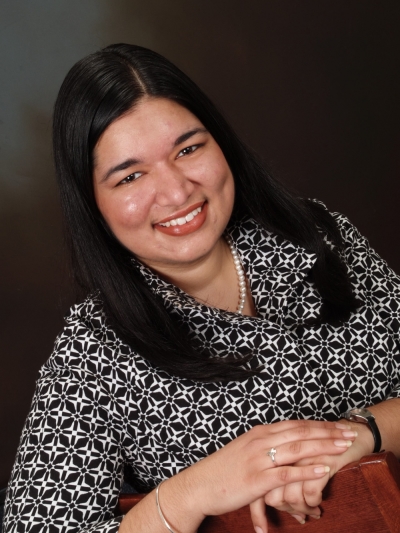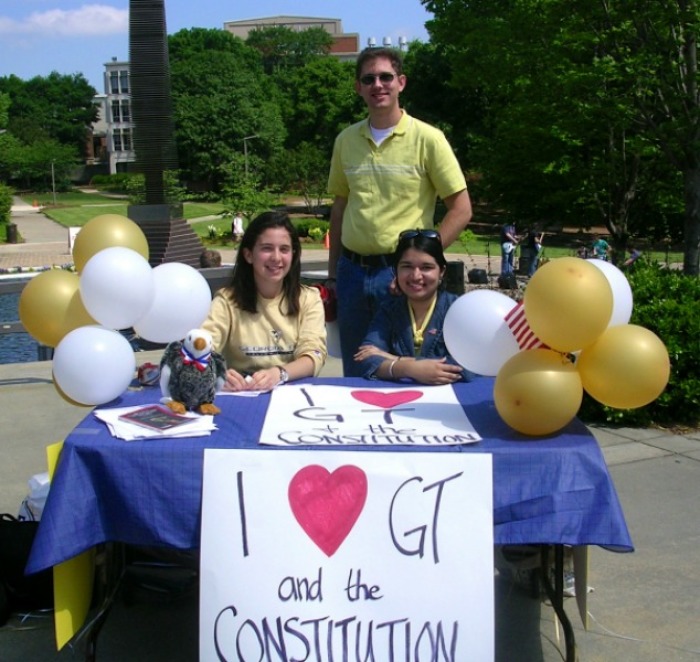God, Georgia Tech, and Going Legal: A Reflection on My First Amendment Lawsuit Nine Years Later

Today marks nine years since I did something that profoundly changed my life. On March 16, 2006, as college students at Georgia Tech, Orit Sklar and I filed a federal civil rights lawsuit against our school for free speech and religious liberty. It was a significant decision, but after much prayer, consideration, and counsel, our love of liberty and our love for Georgia Tech compelled us to take this stand so that every student's First Amendment rights would be respected.
Specifically, the goals of our suit – filed by Alliance Defending Freedom – were: 1) to hold GT accountable for selective enforcement of its speech codes, which resulted in mainstream conservative speech often being considered "hate speech" and "intolerant," while politically-charged, far-out-of-the-mainstream Leftist speech was considered part of the "intellectual diversity" purportedly valued by the Institute; 2) to challenge GT's unlawful discrimination against religious and political groups by refusing to fund them with the Student Activity Fee; and 3) to confront GT's endorsement of certain religious views and ridicule of others through the Institute-run "Safe Space" program. In other words, we wanted free speech for all students, we wanted equal rights for all organizations, and we wanted the Institute to abide by the U.S. Constitution by ceasing to promote certain religions over others.
Orit and I – along with other like-minded students – had endured literally years of censorship and condemnation of our actions and beliefs from Institute officials whenever our views were not in line with the extreme agenda they were desperately trying to promote in the name of tolerance. This was especially apparent when it came to matters of morality and sexuality; for example, on one occasion Institute officials forced us to take down a display confronting radical feminism, and another time administrators pressured us to participate in Coming Out Week, to name just two incidents from our litany of run-ins with campus authorities.
Aside from the case itself and the issues we were confronting in a court of law, a significant aspect of our story involves how our actions were perceived and presented in the court of public opinion.

As soon as our case went public, the radical Left unleashed its furor, engaging in name-calling and character assassination and sending us loads of hate mail. Orit, a leader in the Jewish community and the granddaughter of a Holocaust survivor, was called a "Pharisee Nazi" and much worse, as anti-Semitic slurs were even printed in the campus newspaper and our pictures were photoshopped with swastikas on our faces. I, the daughter of Indian immigrants, was labeled a "Twinkie," as posters went up around campus denouncing me as "yellow on the outside and white on the inside." There was even a group formed on campus called CLAM ("Conservatives and Liberals Against Malhotra," though we never found a conservative who was part of it), and their sole purpose was to organize opposition to our lawsuit. All this seemed mild once we started receiving threats of physical violence, some of which were so serious that I had to move out of my sorority house and go to class with police protection during my final months on campus. I never viewed myself as a victim, but the reaction from those who opposed our actions demonstrated what people who claimed to be tolerant would resort to when their thought monopoly was confronted.
The media coverage of our case added fuel to the fire and soon took on a life of its own. The Los Angeles Times led with the headline "Christian Student Sues For the Right to Be Intolerant," a line which set a distorted narrative for other national coverage. The local media ranged from deceptive to vicious. When we won our first major victory in court knocking down Tech's unconstitutional speech code, the Atlanta Journal-Constitution proclaimed, "Insults Now Allowed at Tech." Perhaps most bizarre, Creative Loafing columnist Cliff Bostock labeled me "the sweet face of hatred passing itself off as religious piety" and actually blamed me for his friend dying of AIDS. This type of "coverage" continued for over two years, and only a handful of journalists were interested in demonstrating some semblance of objectivity in their reporting.
While the reaction from the Left and the mainstream media was troubling, nothing was as frustrating, shocking, and hurtful to me as the reaction I received from some fellow Christians. Many people who claimed the name of Christ were quick to misrepresent not just my actions, but my motivations as well.
Sadly, too many Christians bought into the deceptive notion that I was hateful or anti-gay, that I was a right-wing bully trying to impose my views, and that I filed this lawsuit for the "right to be intolerant." Nothing could be further from the truth. I was frustrated that these fellow believers failed to look beyond the headlines and didn't understand that their own rights were at stake in this case. "I believe the actions of these ladies are doing far more damage than good," wrote Christian blogger Jason Bybee in a presumptuous post-titled "Love Wins." "It's hard for me to see any love in the actions of Ruth Malhotra and Orit Sklar."
I remember how distressing it was when several members of a prominent Christian ministry on Tech's campus got together to oppose my lawsuit and support the unconstitutional "Safe Space" program, stating, "We want to show people that not all Christians are like Ruth Malhotra." When pressed for an explanation, one of the leaders of this group remarked, "We're concerned that this lawsuit might hinder our ability to evangelize on campus," an ironic statement since our case would actually expand the rights of all student groups to speak freely and hold events on campus. "I just have one question for you," my attorney, David French, responded without missing a beat. "Who's evangelizing who?"
Some Christians told me I was simply misguided ("we feel sorry that you are being used," they would say with sympathy and condescension), others told me I shouldn't be taking my brother to court (since when did my school constitute my brother?), and still others told me I should drop the lawsuit entirely and just focus on loving people with whom I disagreed (the two actions are not mutually exclusive, I'd often attempt to explain).
Thankfully, I had a strong circle of support during those tumultuous times and I knew beyond a shadow of a doubt that this wasn't just something God was allowing me to do, it was something He was calling me to do. And whether we won or lost in the public arena, He was my ultimate judge and I was accountable to Him.
Our case took nearly three years in federal court, but our team was victorious every step of the way and we successfully got the unconstitutional policies overturned with judicial oversight. As a result, all current and future Georgia Tech students had greater rights to speak freely and assemble on campus without fear of reprisal, and some parts of our case even set precedent for other universities to follow. In one of the rulings, Judge J. Owen Forrester stated, "It is puzzling to the court that the promotion of tolerance would take the appearance of such intolerance," and in another opinion he even noted "the lack of candor of Georgia Tech throughout the litigation of this case." Finally, on December 23, 2008, the court put an exclamation point on its previous rulings by declaring us the prevailing party and ordering Georgia Tech to pay our attorneys' fees. It was the legal vindication we had hoped to receive when we set out on this journey, though the road leading up to that point had not gone exactly as we had anticipated.




























